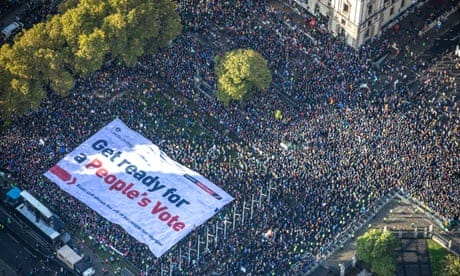There’s a suspicion lingering over COP26 that leading politicians were playing that schoolyard trick of making all manner of promises while crossing their fingers behind their backs. In the case of Britain’s Prime Minister, that appears to be his go-to tactic whenever something legislative, constitutional or personal presents a block to his goals.
It can’t be a surprise that the stench of despair swirls around the conference outcomes. Industrialized nations already have form with regard to previous COP decisions: the total financing promised to developing countries at COP15 in 2009 to mitigate climate change remains unpaid. What could it have been like for a delegate flying home to Barbados, say, peering out of an aircraft window on a bustling island that soon may not exist. (Please watch this, from Mia Mottley, Barbados’ Prime Minister.) The sabre-rattling governments of the west have already demonstrated that when Red Lines are crossed, press freedoms removed, journalists assassinated, the independence of republics crushed, they swiftly retreat from their threats of significant retaliation.
Forgive us, Ukraine, in advance of whatever Russia does next. And the refugees massed at the borders of Poland. The desire to heat our houses affordably this winter is affecting our response to the shamefully brutal manoeuvres of Belarus. Freezing as you are, you’ll surely understand. (Let’s not even think about the energy sources of the air conditioning that will become essential to staying alive once temperatures have risen too far. We’re not about to address that thorny issue.)
A mere 100 companies of fossil fuel producers have been the source of over 70% of greenhouse gas emissions since 1988. The same companies have furnished the election coffers of political parties of the left and the right. Expecting your government to take long term action for the benefit of humanity when those decisions will lose them their wealthy sponsors in the short term? Naive, it turns out.
Once upon a time, the slogan Power to the People had clout. Civil Rights marches led eventually to legislation to end segregation, Black voter suppression, discriminatory employment and housing practices. Campaign for Nuclear Disarmament marches across Europe and the UK and the Greenham Common Peace Camp forced public debate on nuclear missiles. Anti-war protests signalled the beginning of the end of the US in Vietnam.
But People Power lost its sting. In 2003 in the UK, the Blair government ignored the estimated 1.5 million marchers who took to the streets protesting the nation’s support of the invasion of Iraq, along with between six and ten million marchers in up to sixty other countries. In 2019, Alexander Boris de Pfeffel Johnson (named for the piffle he spouts?) ignored the People’s Vote, one of the largest British mass protests ever, demanding a confirmatory referendum on the details of the Brexit deal.
In the last decade, millions have marched for human rights, worker and immigration rights, healthcare and welfare reform. The largest single day protest in US history took place the day after the inauguration of President Trump with the Women’s March when between 3.5 and 5.5 million people marched for the message that women’s rights are human rights.
See where we are with that.
But if politicians won’t grasp the nettle, each individual one of us must. Small acts beget larger ones. Start in the kitchen.
A study just published in the Lancet Planetary Health charting eating habits over the last 30 years confirms increased consumption of ultra-processed foods - sausages, ready-meals, packaged baked goods, confectionery, soft drinks, sugary cereals - is directly linked to increased greenhouse gas emissions. The production of ultra-processed foods used more water and land in all countries even developing ones.
We’ve known these foods have an impact on our physical health. This is the first study to demonstrate they have an impact on the health of our planet.
And the argument that processed foods offer a cheaper way to eat has been crushed by a study from Oxford University last week. This compared the cost of seven ‘sustainable’ diets to typical regular diets in 150 countries. It focused on whole foods and didn't include meat substitutes nor meals eaten out but looked at home-cooked vegetarian, pescatarian, flexitarian and vegan diets. Compared with the cost of regular food, it found that sustainable diets of fruits, vegetables, whole grains, legumes and pulses, with modest amounts of meat and dairy products included, were on average 22-34% lower in price. Not surprisingly, pescatarian diets were up to 2% higher. But vegetarian diets were 27-31% cheaper. Consumers who contend they care about sustainability and would support eating ‘green’ if only it were cheaper should now eat their hats.
“The fact that vegan, vegetarian and flexitarian diets can save you a lot of money,” says Dr Marco Springmann, a researcher on the study, “is going to surprise people.”
To benefit, though, you probably need to know how to cook from scratch with skill - another argument for bringing Home Ec. back into the school curriculum. A nutritionally balanced diet of pasta, peas, onions, brassicas, sesame seeds, wholegrain breakfast cereal and sweets devised in 2012 at the University of Aberdeen would reduce your carbon footprint by 90%. But it sounds inedible.
However, a person eating a mainly vegetarian or a plant-based diet can save 949kg/2092lbs of carbon annually. Adopting one doesn’t consign you to donning dining sackcloth - this is the diet of Mediterranean countries, considered delicious and healthy enough for the glitterati to spend thousands at luxury spas embracing it.
While you would do well to eat much less chicken, pork, beef and dairy foods, you don’t need to give them up entirely. Just those that are produced industrially.
We do have the power to influence what we are offered to eat. Public demand for plant-based products has shown how the industrial food complex whose goal is profit can transform, and at speed. Change your buying habits to foods that aren’t processed. Shop little and often to avoid food waste. Buy only what you will eat. Eat all that you buy. It may seem limited action in the face of a global calamity. But if each of us follows it, it will impact the coffers of Big Food Biz and they will change, too.
What have you got to lose? The Earth.
This recipe will transport you on a Greek holiday, necessary after all that gloom.
These butter beans are called Yigandes in Greek - Giants. Soak 500g/17oz overnight in water to cover then drain and bring gently to the boil. Scoop off the risen scum then simmer gently until soft, up to 2 hours depending on their freshness. Don’t overcook. They shouldn’t be mushy. They will cook further in the sauce.
Saute a finely chopped onion and a finely chopped fat clove of garlic in 1/2 cup of olive oil until soft. Drain the beans and add them to the onion mix. Pour over one cup of water and add a generous squirt of tomato paste, around 3 tablespoons. Alternatively, add 400g/14oz can crushed tomatoes. Stir in 4 tablespoons of fresh dill, finely chopped. If you loathe dill, use parsley. Season to taste with salt and pepper. Simmer with a lid askew until a thick sauce has developed and the beans have fully softened, adding more water if necessary so it doesn’t stick.
When I lived in an isolated village in Greece, tomatoes were seasonal and canned tomatoes rare, which is why I offer the option of tomato paste, which makes just as good a dish, in my view. But that may be sentimental memory.
Eat with a slice of Saganaki, crisp on the outside, gooey on the inside fried cheese made with Kefalotyri or Graviera, which you will notice is how the Greeks might say Gruyere and which you can use instead. It’s Greece’s version of grilled Halloumi.
Slice the cheese as thick as toast. Dampen both sides under a running tap. Dredge in flour, shaking off any excess. Fry 2 minutes each side until gold in 1-2 tablespoons olive oil, flipping it carefully with a spatula in order not to lose any crust. Serve with a slice of lemon and eat while hot or it will harden.
Find more newsletters with opinions and recipes here. If you want to take issue, please Comment.









Sock it to us Julia! Great to see kitchens and food linked to wider politics like this. And as for your delicious recipe- can't wait to savour it. I love beans!